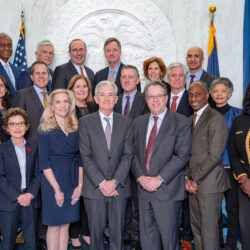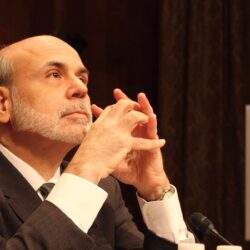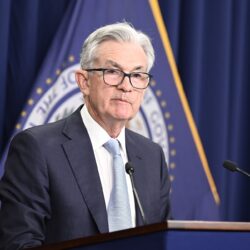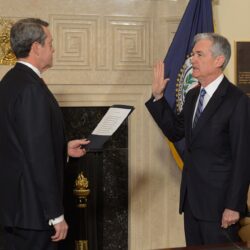
Getting Monetary Policy Back on Track
“Experts seemingly identify much more closely with the central bankers — the practitioners of monetary policy — than with those forced to contend with the negative consequences of bad decisions.” ~Judy Shelton
Monetary policy influences inflation, employment, and economic activity. A stable but dynamic monetary system is vital for supporting economic growth, individual liberty, and a prosperous society. Therefore, we examine the causes and consequences of monetary policy (including inflation), identify ideal and practical steps towards a better monetary policy regime, and look at monetary alternatives and financial regulation.
TL Hogan
OP-1793,'Principles for Climate-Related Financial Risk Management for Large …, 2023
Cryptocurrencies, Blockchain, and Public Choice
RM Yonk, D Waugh
Cryptocurrency Concepts, Technology, and Applications, 2023
General Institutional Considerations of Blockchain and Emerging Applications
PC Earle, DM Waugh
The Emerald Handbook on Cryptoassets: Investment Opportunities and …, 2023
TL Hogan
The Review of Austrian Economics, 1-4, 2022
On the origins of cryptocurrencies
WJ Luther, N Sridhar
A Modern Guide to Austrian Economics, 200-215, 2022
War, money & economy: Inflation and production in the Fed and pre-Fed periods
TL Hogan, DJ Smith
The Review of Austrian Economics, 1-23, 2022

“Experts seemingly identify much more closely with the central bankers — the practitioners of monetary policy — than with those forced to contend with the negative consequences of bad decisions.” ~Judy Shelton

“The ratchet effect has locked us in a world with a massive Fed balance sheet — and the insidious problems of runaway deficit spending and easy bailout monetary expansion that come with it.” ~ Paul Mueller

“Market participants continue to expect the Fed will cut its federal funds rate target this year — just not anytime soon.” ~ William J. Luther

“Milei’s lack of political support in Congress adds to the uncertainty surrounding his ability to successfully pass deregulatory reforms… it is premature to declare victory on the fiscal and inflationary fronts in Argentina.” ~Nicolás Cachanosky

“Even the most faithfully implemented commodity-backed money standard is fundamentally predicated on the integrity and competence of its overseers.” ~Peter C. Earle

“The whole point of expectations-responsive monetary policy is to remove the discretionary and technocratic elements from central banking. Disappointingly but unsurprisingly, the Fed is doing the opposite: doubling down on discretion and technocracy.” ~Alexander W. Salter
250 Division Street | PO Box 1000
Great Barrington, MA 01230-1000
Press and other media outlets contact
888-528-1216
press@aier.org
This work is licensed under a
Creative Commons Attribution 4.0 International License,
except where copyright is otherwise reserved.
© 2021 American Institute for Economic Research
Privacy Policy
AIER is a 501(c)(3) Nonprofit
registered in the US under EIN: 04-2121305